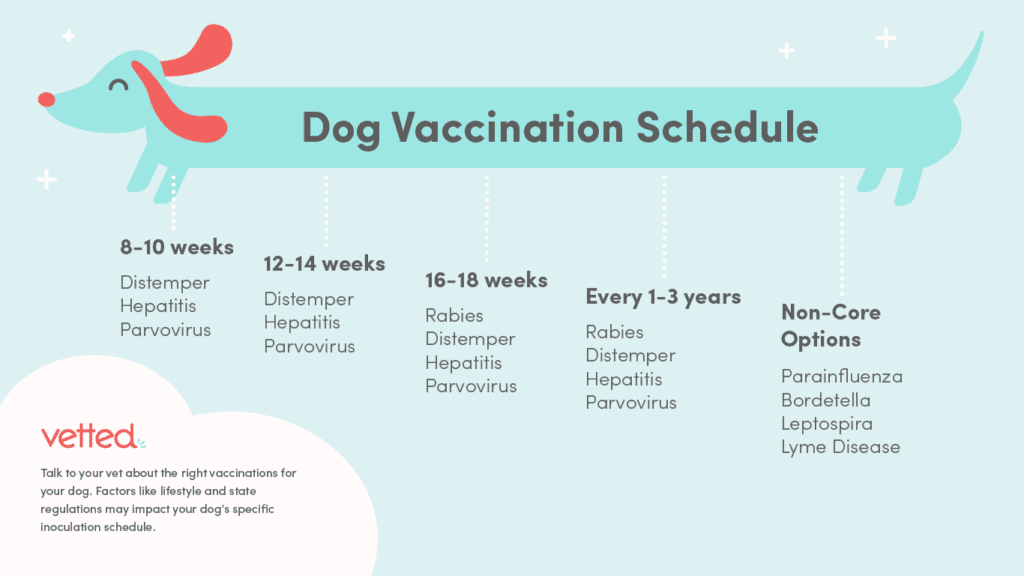Dogs require vaccinations, just like people. It’s one of the best ways to protect their health. In general, dog vaccinations are designated as either “core” or “non-core.” Most dogs do not need all the available vaccines so It’s important to talk to your vet about their lifestyle and environment to determine which ones are right for your dog.
I know vaccinations can be a hot topic, but please only rely on fact-based research and veterinary professionals. A good resource for pet owners wanting more information is the AAHA website.
What you should know about dog vaccinations
Getting your dog vaccinated is one of the most important things you can do for them. It protects them from many dangerous, and potentially fatal diseases. As mentioned above, they are split in to two groups.
Core vaccines
Core vaccinations are recommended for all dogs. There are 4 main core vaccines.
- Canine Parvovirus
- Canine Distemper
- Hepatitis
- Rabies
Rabies in particular is an important vaccine because this disease can end up being fatal for dogs. It can also be spread to humans through the dog’s saliva. In the United States, a dog is legally required to have a rabies vaccine. You can check your state’s specific rabies guidelines here.
Canine Parvovirus is very contagious and life-threatening for pets. It’s one of the most common infectious diseases in dogs. It is spread through direct contact and contaminated surfaces, such as food bowls, collars, or leashes.
Canine distemper is a potentially fatal virus often found in the respiratory system. Sometimes found in dogs that come from shelters or rescue centers, it is spread through contact with bodily secretions or through the air.
Hepatitis is caused by the canine adenovirus. It’s also one of the causes of kennel cough. It is spread by coming in contact with respiratory secretions or contaminated feces or urine.

Non-core vaccines
Non-core vaccines are not mandatory, but they may be recommended by your vet if they feel the dog is at risk for contracting the disease. These vaccines include the following:
- Bordetella
- Canine influenza
- Canine parainfluenza
- Leptospirosis
- Lyme Disease
There are others available as well so it’s worth discussing them with your vet. As I said before, not all dogs need all vaccinations. They may determine that your dog is not likely to be exposed to some of these diseases. But that’s a choice you and your vet need to make together.
Dog vaccinations are safe in general, but there can be a few dogs that have some side effects. However, serious reactions are quite rare. The most common things to watch for are vomiting and hives. We experienced some of this with Norman. Although there are more serious side effects like facial swelling or difficulty breathing. If you notice either of these reactions, take your dog to the vet immediately.
Dog vaccinations timetable
How often should you take your pet to receive a vaccine? That depends on your dog’s age. For example, puppies need a vaccine at least 2-3 times per year. Adult dogs typically require boosters, but the frequency depends on the particular vaccine. The core vaccines usually are effective for about 3 years. The non-core vaccines may require annual visits. Your vet should help you stay update on any required booster shots. Below is a graphic from Vetted Pet Care that you can use as a guide.
Final thoughts on dog vaccinations
If you have worries about vaccinations, talk to your vet. After all, their goals are the same as yours – keeping your pet happy and healthy. If you’re concerned about giving them too many vaccinations at once, ask about delaying any that are not immediately necessary. Develop a trusting relationship with your vet and be sure to voice any concerns. Together you can help your dog avoid serious diseases and live a long, care free life!

